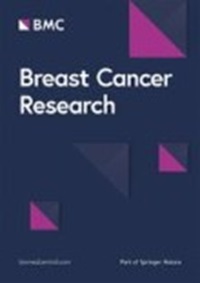How does weight gain since the age of 18 years affect breast cancer risk in later life? A meta-analysis
IF 5.6
1区 医学
Q1 ONCOLOGY
引用次数: 0
Abstract
Early life factors are important risk factors for breast cancer. The association between weight gain after age 18 and breast cancer risk is inconsistent across previous epidemiologic studies. To evaluate this association, we conducted a meta-analysis according to PRISMA guidelines and the established inclusion criteria. We performed a comprehensive literature search using Medline (Ovid), Embase, Scopus, Cochrane Library, and ClinicalTrials.gov to identify relevant studies published before June 3, 2022. Two reviewers independently reviewed the articles for final inclusion. Seventeen out of 4,725 unique studies met the selection criteria. The quality of studies was assessed using the Newcastle-Ottawa Scale (NOS), and all were of moderate to high quality with NOS scores ranging from 5 to 8. We included 17 studies (11 case-control, 6 cohort) in final analysis. In case-control studies, weight gain after age 18 was associated with an increased risk of breast cancer (odds ratio [OR] = 1.25; 95% CI = 1.07–1.48), when comparing the highest versus the lowest categories of weight gain. Menopausal status was a source of heterogeneity, with weight gain after age 18 associated with an increased risk of breast cancer in postmenopausal women (OR = 1.53; 95% CI = 1.40–1.68), but not in premenopausal women (OR = 1.01; 95% CI = 0.92–1.12). Additionally, a 5 kg increase in weight was positively associated with postmenopausal breast cancer risk (OR = 1.12; 95%CI = 1.05–1.21) in case-control studies. Findings from cohort studies were identical, with a positive association between weight gain after age 18 and breast cancer incidence in postmenopausal women (relative risk [RR] = 1.30; 95% CI = 1.09–1.36), but not in premenopausal women (RR = 1.06; 95% CI = 0.92–1.22). Weight gain after age 18 is a risk factor for postmenopausal breast cancer, highlighting the importance of weight control from early adulthood to reduce the incidence of postmenopausal breast cancer.18 岁以后的体重增加如何影响日后患乳腺癌的风险?荟萃分析
早期生活因素是乳腺癌的重要风险因素。在以往的流行病学研究中,18 岁以后体重增加与乳腺癌风险之间的关系并不一致。为了评估这种关联,我们根据 PRISMA 指南和既定的纳入标准进行了一项荟萃分析。我们使用 Medline (Ovid)、Embase、Scopus、Cochrane Library 和 ClinicalTrials.gov 进行了全面的文献检索,以确定 2022 年 6 月 3 日之前发表的相关研究。两名审稿人分别独立审阅文章,以确定最终纳入的研究。在 4725 项独特的研究中,有 17 项符合筛选标准。研究质量采用纽卡斯尔-渥太华量表(Newcastle-Ottawa Scale,NOS)进行评估,所有研究的质量均为中上等,NOS评分在5到8分之间。我们在最终分析中纳入了 17 项研究(11 项病例对照研究和 6 项队列研究)。在病例对照研究中,比较体重增加的最高和最低类别,18 岁以后体重增加与乳腺癌风险增加有关(几率比 [OR] = 1.25;95% CI = 1.07-1.48)。绝经状态是异质性的一个来源,绝经后妇女 18 岁后体重增加与乳腺癌风险增加有关(OR = 1.53;95% CI = 1.40-1.68),而绝经前妇女则无关(OR = 1.01;95% CI = 0.92-1.12)。此外,在病例对照研究中,体重增加 5 千克与绝经后乳腺癌风险呈正相关(OR = 1.12;95%CI = 1.05-1.21)。队列研究的结果相同,18 岁以后体重增加与绝经后妇女乳腺癌发病率呈正相关(相对风险 [RR] = 1.30;95% CI = 1.09-1.36),但与绝经前妇女无关(RR = 1.06;95% CI = 0.92-1.22)。18岁以后体重增加是绝经后乳腺癌的一个风险因素,这凸显了从成年早期开始控制体重对降低绝经后乳腺癌发病率的重要性。
本文章由计算机程序翻译,如有差异,请以英文原文为准。
求助全文
约1分钟内获得全文
求助全文
来源期刊

Breast Cancer Research
医学-肿瘤学
自引率
0.00%
发文量
76
期刊介绍:
Breast Cancer Research is an international, peer-reviewed online journal, publishing original research, reviews, editorials and reports. Open access research articles of exceptional interest are published in all areas of biology and medicine relevant to breast cancer, including normal mammary gland biology, with special emphasis on the genetic, biochemical, and cellular basis of breast cancer. In addition to basic research, the journal publishes preclinical, translational and clinical studies with a biological basis, including Phase I and Phase II trials.
 求助内容:
求助内容: 应助结果提醒方式:
应助结果提醒方式:


